VW ID.3 VS Hyundai Kona – Specs, Efficiency & Price Comparison
Which model is the better choice – the VW ID.3 or the Hyundai Kona? We compare performance (326 HP vs 218 HP), boot capacity (385 L vs 466 L), efficiency (14.50 kWh vs 14.60 kWh4.50 L), and of course, the price (28600 £ vs 23100 £).
Find out now which car fits your needs better!
The VW ID.3 (Hatchback) is powered by a Electric engine and comes with a Automatic transmission. In comparison, the Hyundai Kona (SUV) features a Petrol, Full Hybrid or Electric engine and a Manuel or Automatic gearbox.
When it comes to boot capacity, the VW ID.3 offers 385 L, while the Hyundai Kona provides 466 L – depending on what matters most to you. If you’re looking for more power, you’ll need to decide whether the 326 HP of the VW ID.3 or the 218 HP of the Hyundai Kona suits your needs better.
There are also differences in efficiency: 14.50 kWh vs 14.60 kWh4.50 L. In terms of price, the VW ID.3 starts at 28600 £, while the Hyundai Kona is available from 23100 £.
Compare all the key specs now and find out which model fits your lifestyle best!
In the electrified showdown between the Hyundai Kona Electric and the Volkswagen ID.3, both cars bring distinct advantages to the table. The Kona Electric shines with its impressive range and affordability, making it an appealing choice for budget-conscious consumers seeking long-distance capabilities. On the other hand, the VW ID.3 offers a more premium feel and an innovative design, potentially appealing to those who prioritize aesthetics and cutting-edge technology in their eco-friendly ride.
VW ID.3
The VW ID.3 represents Volkswagen's entry into the world of electric vehicles, offering a modern design that combines functionality with sustainability. Inside, you'll find a spacious and tech-forward interior, providing a comfortable driving experience while maintaining a focus on environmentally friendly materials. The ID.3's performance delivers a smooth and responsive feel on the road, making it a strong contender in the growing electric car market.
details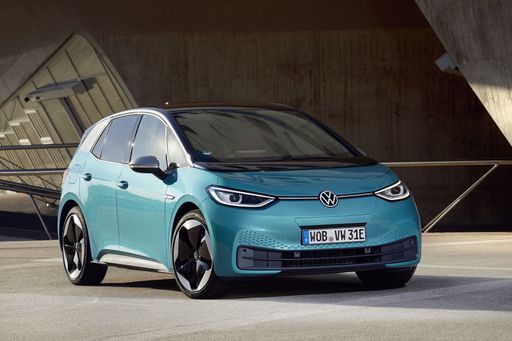 @ Volkswagen
@ Volkswagen
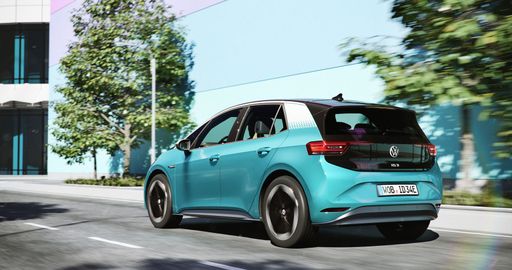 @ Volkswagen
@ Volkswagen
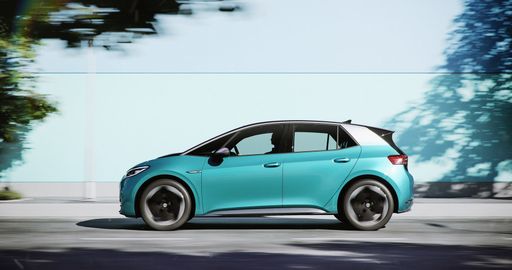 @ Volkswagen
@ Volkswagen
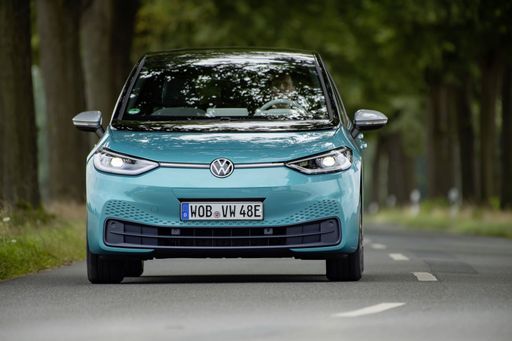 @ Volkswagen
@ Volkswagen
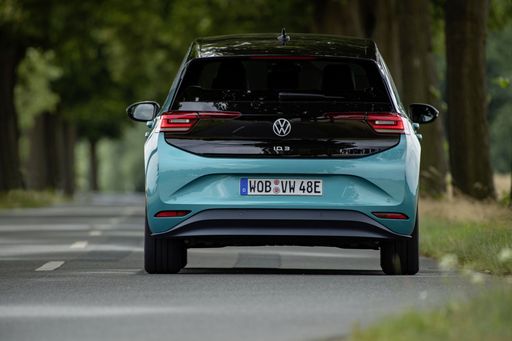 @ Volkswagen
@ Volkswagen
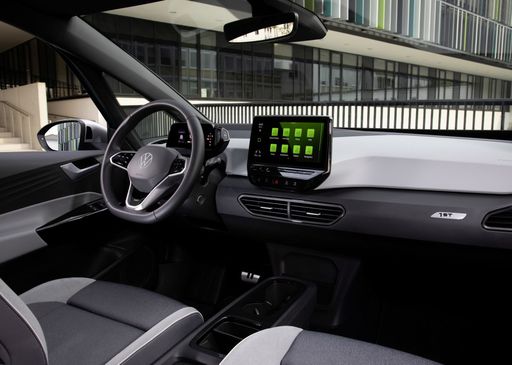 @ Volkswagen
@ Volkswagen
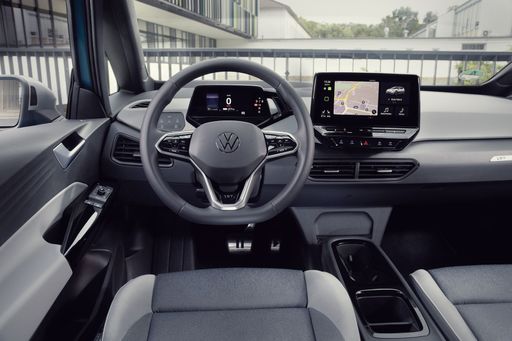 @ Volkswagen
@ Volkswagen
Hyundai Kona
The Hyundai Kona blends a bold design with a versatile interior, making it a standout choice in the compact SUV market. Its crisp handling and responsive steering provide an engaging driving experience, whether in the city or on the open road. The vehicle also offers a range of features designed to enhance comfort and connectivity, ensuring a pleasurable journey for both driver and passengers.
details @ hyundai.news
@ hyundai.news
 @ hyundai.news
@ hyundai.news
 @ hyundai.news
@ hyundai.news
 @ hyundai.news
@ hyundai.news
An Electrifying Showdown: Hyundai Kona vs VW ID.3
The automotive world's shift towards electric vehicles has brought exciting innovations, developing choices for consumers who seek eco-friendly driving solutions. In this competitive arena, the Hyundai Kona and the VW ID.3 stand out as robust contenders, both offering distinctive advantages in design, technology, and performance. Here, we delve into a comparative analysis of these two models to help you determine which might be your ideal next car.
Design and Body Type
The Hyundai Kona is characterized as an SUV, offering the elevated stance and spacious feel that come with this body type. Measuring between 4350mm and 4385mm in length, and with a height of up to 1585mm, the Kona provides a commanding presence on the road, with ample space for five occupants.
On the other hand, the VW ID.3 presents itself as a hatchback. With a length of 4264mm, a width of 1809mm, and a height of 1564mm, the ID.3 combines sleek aerodynamic lines with compact versatility. It also comfortably accommodates five passengers, demonstrating how efficient packaging can maximize interior volume.
Performance and Drive
The Kona comes with a versatile choice of powertrains, from traditional petrol engines to full hybrids and fully electric options. In its all-electric form, the Kona delivers up to 218 HP, reaches 0-100 km/h in 7.8 seconds, and can reach a maximum speed of 208 km/h. It also offers an electric range of up to 514 km, thanks to its substantial 65.4 kWh battery capacity.
Meanwhile, the VW ID.3 is exclusively electric, emphasizing its commitment to sustainable driving. It boasts a variety of power outputs up to 326 HP and torque that peaks at 545 Nm, allowing it to sprint from 0-100 km/h in just 5.7 seconds. Its maximum range can extend to an impressive 601 km, backed by available battery capacities up to 79 kWh.
Efficiency and Eco-Friendliness
In terms of efficiency, the Hyundai Kona's electric variant demonstrates a consumption rate of about 14.6 to 16.8 kWh/100km, along with a competitive CO2 efficiency class rating from A to E, depending on the model and engine choice. These numbers reflect its commitment to reducing emissions and operational costs.
The VW ID.3 maintains a consumption rate of 14.5 to 15.8 kWh/100km, asserting its position as a sustainable choice with a consistent CO2 emission of zero. Its classification in the highest CO2 efficiency class ensures that drivers feel good about their environmental impact.
Interior Space and Utility
The Kona offers a substantial trunk capacity of 466 liters, highlighting its utility for families or those requiring ample cargo space. Its SUV architecture naturally lends itself to more versatile use, whether it's a grocery run or a weekend adventure.
The ID.3, with a trunk capacity of 385 liters, demonstrates an efficient use of space typical of hatchbacks. What it might lack in sheer volume, it makes up for with clever interior design that enhances the passenger experience and usability.
Conclusion: Choosing Your Next Electric Companion
When choosing between the Hyundai Kona and the VW ID.3, your decision may come down to your preferred body type and the experience you seek. If you prioritize an SUV's commanding presence and all-around versatility, the Hyundai Kona might be your ideal companion. Conversely, if a sleek, aerodynamic hatchback with cutting-edge innovations appeals more, then the VW ID.3 could be the choice for you. Both models provide exceptional electric performance and environmental benefits, ensuring a greener drive towards the future.

|

|
|
|
|
Costs and Consumption |
|
|---|---|
|
Price
28600 - 41800 £
|
Price
23100 - 41600 £
|
|
Consumption L/100km
-
|
Consumption L/100km
4.5 - 6.9 L
|
|
Consumption kWh/100km
14.5 - 15.8 kWh
|
Consumption kWh/100km
14.6 - 16.8 kWh
|
|
Electric Range
383 - 606 km
|
Electric Range
377 - 514 km
|
|
Battery Capacity
52 - 79 kWh
|
Battery Capacity
1.3 - 65.4 kWh
|
|
co2
0 g/km
|
co2
0 - 157 g/km
|
|
Fuel tank capacity
-
|
Fuel tank capacity
38 - 47 L
|
Dimensions and Body |
|
|---|---|
|
Body Type
Hatchback
|
Body Type
SUV
|
|
Seats
5
|
Seats
5
|
|
Doors
5
|
Doors
5
|
|
Curb weight
1787 - 2000 kg
|
Curb weight
1370 - 1773 kg
|
|
Trunk capacity
385 L
|
Trunk capacity
466 L
|
|
Length
4264 mm
|
Length
4350 - 4385 mm
|
|
Width
1809 mm
|
Width
1825 mm
|
|
Height
1564 mm
|
Height
1580 - 1585 mm
|
|
Payload
430 - 473 kg
|
Payload
420 - 490 kg
|
Engine and Performance |
|
|---|---|
|
Engine Type
Electric
|
Engine Type
Petrol, Full Hybrid, Electric
|
|
Transmission
Automatic
|
Transmission
Manuel, Automatic
|
|
Transmission Detail
-
|
Transmission Detail
Schaltgetriebe, Automat. Schaltgetriebe (Doppelkupplung)
|
|
Drive Type
Rear-Wheel Drive
|
Drive Type
Front-Wheel Drive, All-Wheel Drive
|
|
Power HP
170 - 326 HP
|
Power HP
100 - 218 HP
|
|
Acceleration 0-100km/h
5.7 - 8.2 s
|
Acceleration 0-100km/h
7.8 - 13.3 s
|
|
Max Speed
160 - 200 km/h
|
Max Speed
162 - 208 km/h
|
|
Torque
310 - 545 Nm
|
Torque
200 - 265 Nm
|
|
Number of Cylinders
-
|
Number of Cylinders
3 - 4
|
|
Power kW
125 - 240 kW
|
Power kW
74 - 160 kW
|
|
Engine capacity
-
|
Engine capacity
998 - 1598 cm3
|
General |
|
|---|---|
|
Model Year
2024
|
Model Year
2024
|
|
CO2 Efficiency Class
A
|
CO2 Efficiency Class
D, C, E, F, A
|
|
Brand
VW
|
Brand
Hyundai
|
VW ID.3
Introducing the VW ID.3: A New Age of Electric Driving
In the ever-evolving world of electric vehicles, Volkswagen stands as a beacon of innovation and sustainability. The VW ID.3 is the marque’s answer to a cleaner future, presenting a stylish and practical hatchback that captivates the eco-conscious yet demanding motorist. With variations that cater to diverse preferences, the ID.3 sets a new standard in the electric vehicle segment.
Performance & Efficiency: Pure Electric Power
The VW ID.3 offers a dynamic blend of performance and efficiency with power ranging from 170 to 326 PS. This is translated into on-road finesse by its automatic gearbox and rear-wheel drive configuration. Drivers can expect an impressive range between 383 to 604 km on a single charge, thanks to the vehicle’s efficient energy consumption which sits between 14.5 to 15.8 kWh/100km. Catering to various driving styles, it delivers acceleration from 0 to 100 km/h in just 5.7 to 8.2 seconds, all while maintaining zero emissions on the road.
Innovative Technology: Beyond the Basics
Volkswagen has embedded advanced technological features into the ID.3 to enhance user experience. The vehicle boasts a reduction gearbox designed for peak efficiency and seamless driving. It also comes equipped with the latest infotainment systems, a digital cockpit and safety features that elevate both convenience and security to new heights.
Design & Comfort: Spacious and Sleek
With a length of 4264 mm and a width of 1809 mm, the VW ID.3 comfortably accommodates five passengers while offering a generous 385-litre boot capacity. The sleek, streamlined silhouette is complemented by a spacious interior design prioritizing both comfort and sophistication. Crafted for the modern driver, the ID.3 offers features like adaptive ambient lighting and adjustable seating, ensuring a journey as pleasant as the destination.
Environmental Impact: Driving Towards Zero Emissions
Aligned with the target of reducing carbon footprints, the ID.3 performs strongly with a CO2 emission rating of 0 g/km, holding a proud A-class CO2 efficiency rating. By embracing sustainable materials and methods, Volkswagen reduces the life-cycle emissions of the ID.3, making it a hallmark of eco-friendly vehicle innovation.
The Verdict: A Smart Choice
The VW ID.3 represents a critical step forward in the era of electric mobility. With an enticing price range of €36,900 to €52,295, it offers a balance between value, sustainability, and tech-laden driving experience. Whether for city errands or long journeys, the VW ID.3 stands out with its commitment to innovation and environmental stewardship, making it an exemplary choice for today's discerning driver.
Hyundai Kona
The Hyundai Kona: A Comprehensive Overview
The Hyundai Kona has established itself as a standout in the compact SUV segment, blending innovation with performance and style. As the automotive world moves towards more sustainable and efficient options, the Kona offers a variety of powertrains, from traditional petrol engines to full hybrids and all-electric models.
Powertrain Options and Performance
The Hyundai Kona's powertrain choices cater to a wide range of preferences. For petrol enthusiasts, the Kona offers a 1.0L T-GDI engine, delivering 100 PS, and a more robust 1.6L T-GDI variant with up to 170 PS. Those looking for efficiency without sacrificing power can consider the full hybrid model, offering 129 PS and an impressive consumption of 4.5 L/100km.
For a greener option, the all-electric Kona provides a compelling case. With battery capacities of up to 65.4 kWh, the electric Kona offers power outputs of 156 to 218 PS, and efficiencies as low as 14.6 kWh/100km, enabling an electric range of up to 513 km.
Technical Specifications and Innovations
Built on a robust platform, the Kona delivers versatility and reliability. With a choice between manual or dual-clutch automatic gearboxes, along with options for front-wheel or all-wheel drive, the Kona ensures a tailored driving experience. The handling is enhanced by the car's lightweight construction, balancing a 1370 to 1773 kg curb weight with dynamic performance.
The Kona's design doesn't compromise cargo space for style; it offers a generous 466 L boot capacity. With a relatively compact body, measuring 4350 to 4385 mm in length, the Kona easily navigates urban environments while still commanding a strong road presence with its 1825 mm width.
Efficiency and Eco-Friendliness
Hyundai is committed to reducing emissions, as evidenced by the Kona's CO2 efficiency ratings, which range from class A for electric models to class D for some higher-performance petrol variants. The focus on reducing environmental impact without sacrificing driving pleasure is notable throughout the Kona range.
Costing and Value
The Hyundai Kona offers commendable value for money. Pricing starts at €26,400 and reaches up to €50,690, depending on the chosen configuration. The monthly running costs range from €956 to €1090, with a cost per kilometre of 38.3 to 43.6 cents, making it a competitive option in its class.
Conclusion: Modern, Efficient, and Versatile
The Hyundai Kona stands as a testament to Hyundai's commitment to innovation, efficiency, and practicality. Whether you are inclined towards a traditional combustion engine, a hybrid for a balance of power and efficiency, or a full electric model for maximum eco-friendliness, the Kona provides a tailored solution for each unique driver preference.
The prices and data displayed are estimates based on German list prices and may vary by country. This information is not legally binding.
